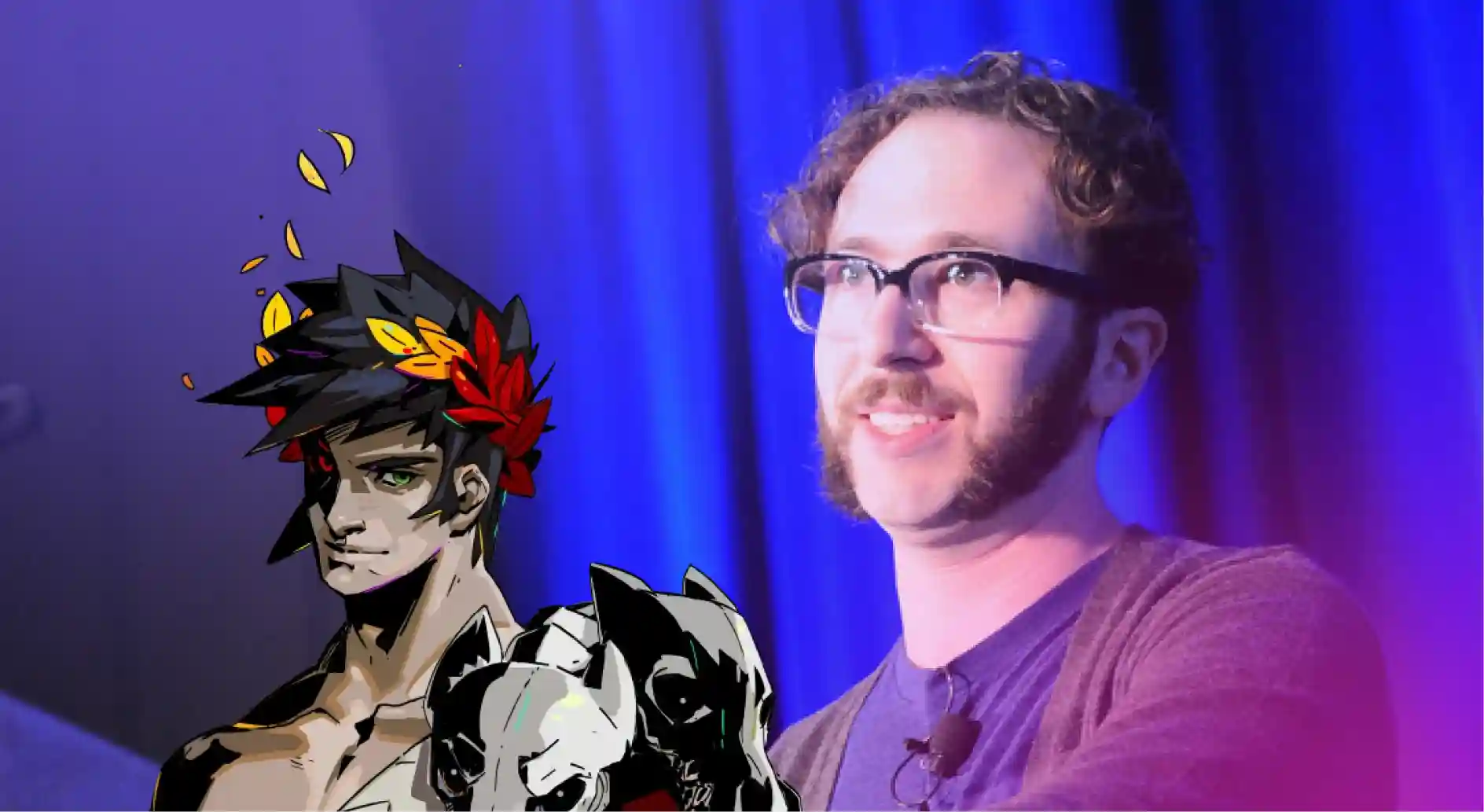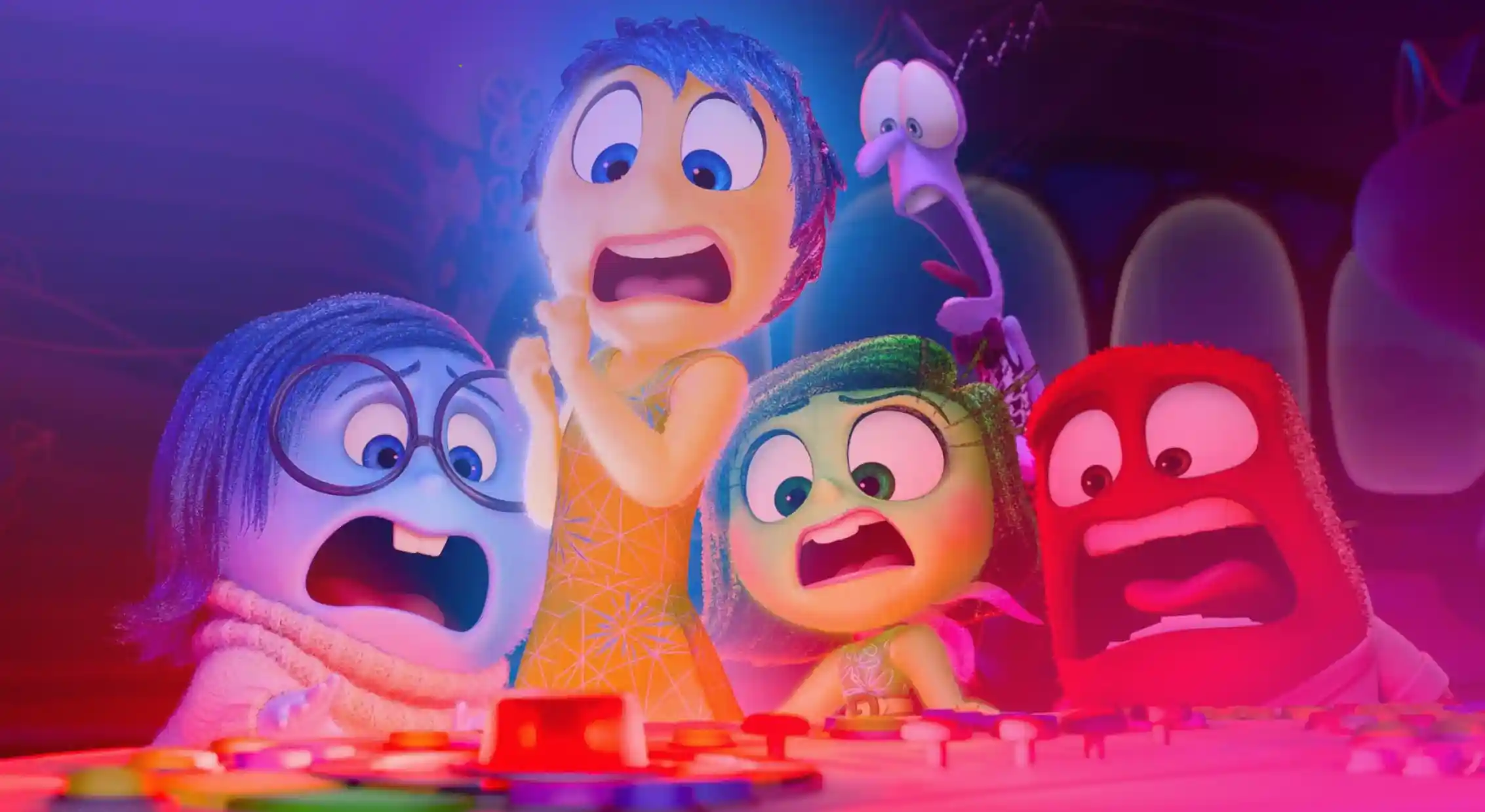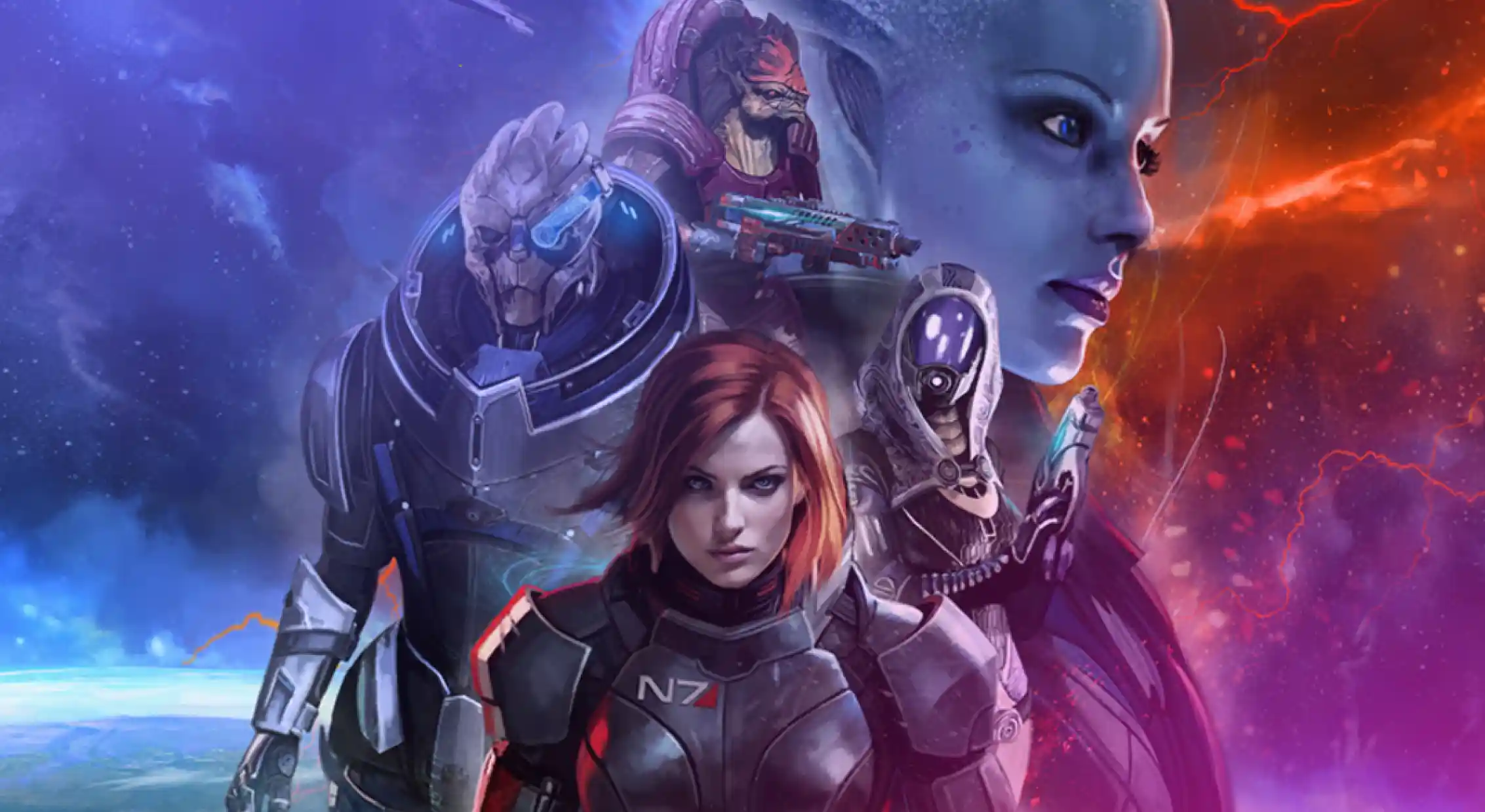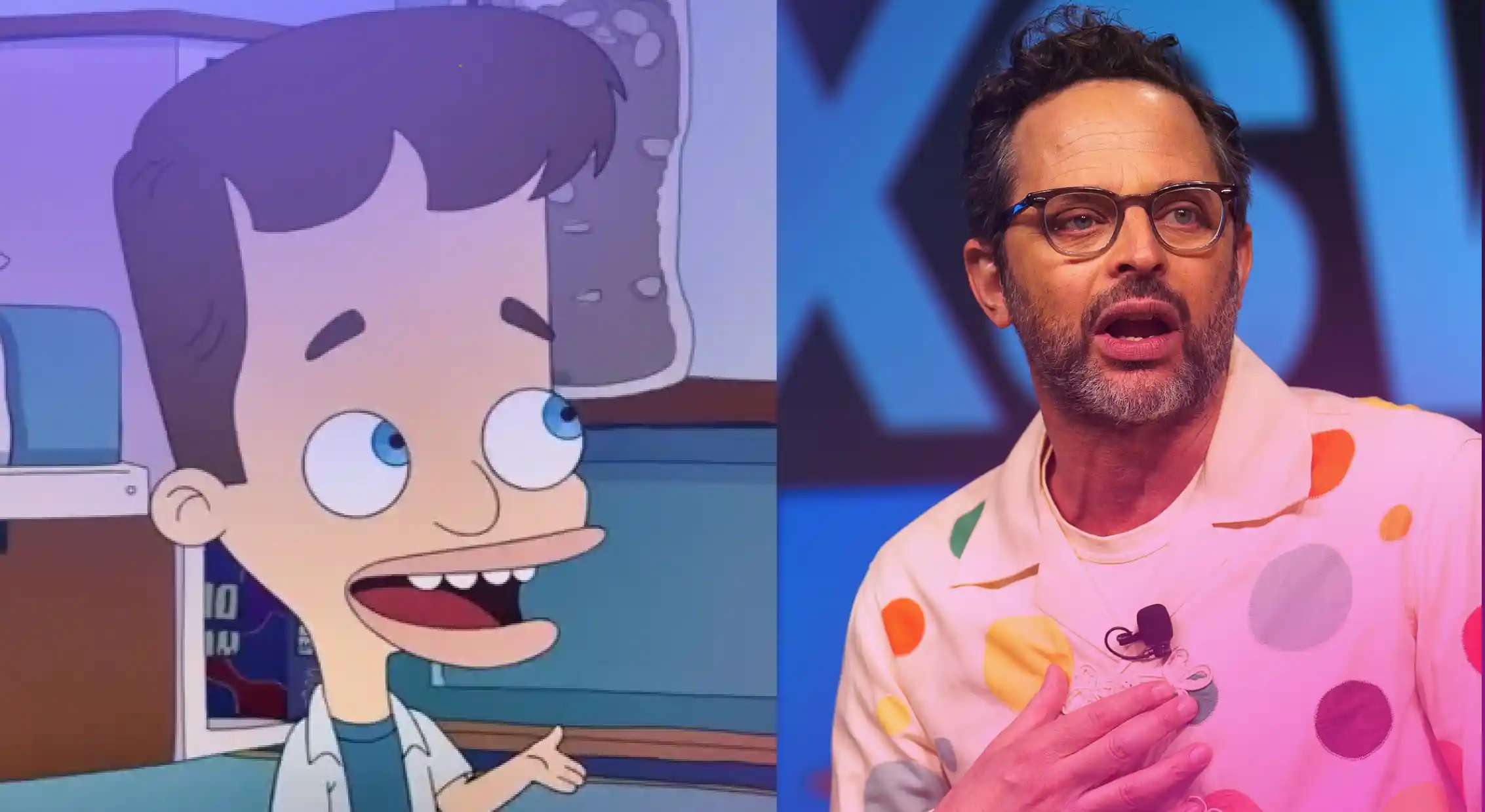Lightning McQueen Voice Actor Spotlight: Who Brings Him to Life?
In 2006, a red racecar with a cocky grin and a heart of gold made its way to our screens and into pop culture history. With the release of Cars, Pixar did not just introduce another animated character; it gave us Lightning McQueen, a rookie with a need for speed and a lot to learn about life. While the slick animation and heartwarming story made Cars a success, the soul of Lightning McQueen came from one place — his voice.
The voice behind McQueen was not some mystery animation veteran. It was Owen Wilson, a Hollywood actor more known for his laid-back charm comedy flicks than his voice acting chops. Yet, his performance turned out to be the perfect match, giving Lightning his signature blend of swagger, vulnerability, and wit.
Let’s understand how Owen Wilson came to embody one of Pixar’s most iconic characters, to the evolution of McQueen’s voice over the years.
Owen Wilson – The Voice of Lightning McQueen
.webp)
Before he was speeding around the Piston Cup circuit, Owen Wilson was best known for his roles in offbeat comedies and heartfelt indie films. Born in Dallas, Texas, Wilson rose to fame with Wes Anderson’s Bottle Rocket (1996) and Rushmore (1998), later cementing his place in Hollywood with hits like Zoolander (2001), Wedding Crashers (2005), and The Royal Tenenbaums (2001)—which he also co-wrote and for which he received an Academy Award nomination for Best Original Screenplay.
When Pixar cast him as Lightning McQueen, it was an unconventional choice. Wilson had never voiced a central animated character before. But director John Lasseter saw something in him: a voice that was instantly recognizable, relaxed, and, most importantly, human. Lightning was not supposed to sound like a cartoon. He was a hotshot who needed to grow up, and Wilson’s natural delivery gave that arc authenticity.
Wilson would go on to voice Lightning in:
- Cars (2006)
- Cars 2 (2011)
- Cars 3 (2017)
- Cars on the Road (2022 Disney+ series)
Beyond Cars, Wilson has voiced Coach Skip in Fantastic Mr. Fox (2009) and Reggie in Free Birds (2013). More recently, he's found a second life in the Marvel universe as Mobius M. Mobius in Loki (2021–present), bringing his dry charm to an entirely new generation of fans.
Any Other English Voice Actors?
Yes, though Owen Wilson is best known as the voice of Lightning McQueen, a few other English-speaking actors have stepped in for specific projects. For example, Keith Ferguson voiced McQueen in several Cars video games and some merchandise. These substitutions usually happened when Wilson wasn’t available, but they were the exception rather than the norm. Most fans still strongly associate the character with Wilson’s original performance.
Supporting Cast Highlights
Lightning wouldn’t be Lightning without the rest of Radiator Springs and the racing world around him. Some notable voice talents include:
- Paul Newman as Doc Hudson (his final film role)
- Bonnie Hunt as Sally
- Larry the Cable Guy as Mater
- Tony Shalhoub as Luigi
- Cheech Marin as Ramone
- Michael Keaton as Chick Hicks
- Michael Caine as Finn McMissile (in Cars 2)
- Cristela Alonzo as Cruz Ramirez (in Cars 3)
Each of these actors brought their own flair, but it was Owen Wilson’s grounded voice work that kept Lightning’s story consistent and compelling across films.
Lightning McQueen Spotlight: From Arrogance to Empathy
When we first meet Lightning McQueen, he is brash, self-absorbed, and singularly focused on winning. But he softens over time—thanks to Radiator Springs, Doc Hudson's mentorship, and Mater's friendship. He learns humility. He becomes a mentor himself.
This character arc is not just written; it is heard. Wilson’s performance shifts subtly over the trilogy:
- In Cars, his voice is fast-talking and sharp-edged.
- In Cars 2, Wilson kept McQueen's maturity intact while the film took a more action-comedy tone.
- By Cars 3, his voice carries a weight. There’s reflection, doubt, and wisdom as McQueen faces the end of his racing career.
Wilson didn’t overplay it. He lets pauses, tone, and rhythms do the heavy lifting, something even veteran voice actors admire.
McQueen's emotional journey is predominantly vocal, unlike some animated leads who rely on exaggerated expressions or slapstick. You feel his frustration when he loses. You hear the pride in his voice when he mentors Cruz. And when he remembers Doc Hudson, it is Wilson’s restraint that delivers the gut punch.
Lightning McQueen Behind-the-Scenes: Voice Acting Process
Voice acting may seem like a simple job: read the lines, match the emotion, and move on. However, the process is anything but routine for a character like Lightning McQueen, brought to life with such nuance and growth. Owen Wilson's work behind the scenes reveals how much craft goes into every Ka-chow!
The Recording Experience
Wilson often recorded his lines alone in a soundproof booth, without the benefit of interacting with other cast members or seeing finished animation. That meant he had to imagine everything—from roaring crowds at the Piston Cup to intimate conversations in a small town of Radiator Springs.
“You have to build the world in your head,” Wilson shared in a behind-the-scenes interview. “In one scene, you’re racing at 200 mph, in the next, you are watching the sunset with Sally. And you’re just in a room with a mic.”
It wasn't uncommon for Wilson to record dozens of takes for a single line, each subtly different in tone or timing. The challenge was not just sounding like Lightning McQueen but feeling like him.
Pixar’s Approach to Direction
Pixar is known for its precision, and the Cars series was no different. Director John Lasseter, who worked closely with Wilson on the first two films, pushed for authenticity.
“We told Owen: don’t act, just be yourself,” Lasseter recalled. “Lightning is cool, but he is learning. That’s Owen; he brings that to the mic.”
This approach gave McQueen a natural, almost improvisational charm. Some of Wilson’s most iconic lines, including the now-famous Ka-chow!, were ad-libbed during recording sessions.
The Emotional Challenge
In Cars 3, McQueen’s story takes a more reflective turn. Recording those scenes—where Lightning comes to terms with his aging and legacy—was particularly demanding.
“It was kind of like doing a sports movie in slow motion,” Wilson said, referencing the final act where McQueen passes the torch to Cruz Ramirez. “You’re not yelling or racing. You’re just trying to make peace with who you are now.”
Quiet moments, like McQueen reminiscing about Doc Hudson, proved the most difficult. “Those were the lines where I would slow down and try not to overdo it. Less energy, more meaning,” Wilson explained.
Want a look inside the booth? Check out this YouTube video from Pixar that shows the cast recording lines and talking about the experience.
Explore AI-powered dubbing with Murf
From the booming presence of the God of War Kratos' voice actor to the relaxed charm of Lightning McQueen, fans are increasingly drawn to the voices behind their favorite characters. And thanks to AI tools, experimenting with those styles has never been more accessible.
While nothing replaces the human nuance Owen Wilson brings to Lightning McQueen, today’s technology allows fans to play in that same creative space. Tools like Murf AI are opening doors for hobbyists, content creators, and even animators looking to experiment with voice dubbing.
What is Murf AI?
Murf AI is a text-to-speech tool that lets users create lifelike voiceovers in more than 20 languages and over 200 voice styles. It is a platform that offers free AI dubbing, voice cloning, and text to speech capabilities, along with several other features built for various creative needs like making YouTube videos, narrating a presentation, or experimenting with character voices for animation. Users can adjust pitch, speed, and tone to suit different projects, all from an easy-to-use interface. While it doesn't replicate celebrity voices, Murf gives creators the flexibility to craft original content that sounds natural and polished, making it a go-to option for storytellers, educators, and hobbyists looking to bring their scripts to life.
Can You Recreate Lightning McQueen’s Voice?
You can’t recreate Lightning McQueen’s voice exactly with Murf—and that is intentional. Murf doesn’t offer replicas of copyrighted voices, but it does give you access to a wide range of voice styles that can capture a similar tone. Want something that sounds laid-back, confident, and energetic like Lightning? Choose an upbeat male voice and customize it by adjusting pitch, tempo, and emphasis. It is a fun way to create McQueen-inspired dialogue or fan-made scenes while respecting voice ownership. Whether you or your team are working on a parody, a creative project like replicating the sound of the Shrek voice actor, or just exploring voiceover tools, Murf makes it easy to experiment and play.
This opens up creative possibilities:
- Fan fiction voiceovers
- Animated YouTube skits
- Alternate endings or scenes
- Practice for aspiring voice actors
Why Creators Love It
With Murf AI, creators do not need expensive mics or studios. The platform gives them tools like AI dubbing to storyboard and voice their ideas. Some can even create “alternate universe" versions of movie scenes, reimagining Lightning as a villain or Mater as a philosopher.
Of course, all of this is for fun. Murf encourages ethical use and respects voice ownership. It is not about copying Owen Wilson’s voice; it is about celebrating the joy of character voiceovers and making it accessible to all.
Closing Thoughts
Lightning McQueen’s voice is more than just a line delivery; it is a personality. It is a full arc of growth, struggle, and triumph brought to life by Owen Wilson’s authentic performance. While the animation world often celebrates visuals, it is the voice that makes the audience feel real emotions.
With tools like Murf AI, anyone can step into the booth, create new scenes, voice alternate timelines, or have fun with beloved characters. Whether you are a Pixar fan or an aspiring voice artist, something is inspiring about the journey from Ka-chow! to a heartfelt mentor.
As Lightning once said: “I’m not coming in behind you again, old man.” Thanks to voice acting, neither is this character going out of style anytime soon.
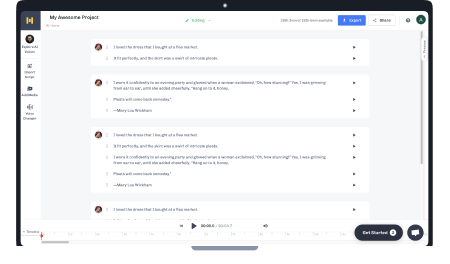
Frequently Asked Questions
Who voices Lightning McQueen in English?
.svg)
Lightning McQueen is voiced by American actor Owen Wilson, whose smooth, relaxed tone and subtle emotional range have become inseparable from the character. Wilson has provided the voice for McQueen in all three Cars films, the Cars on the Road Disney+ series.
What are other notable roles played by Owen Wilson?
.svg)
Owen Wilson has had a diverse acting career playing major characters in films like Wedding Crashers, Zoolander, and Marley & Me, and received critical acclaim for Midnight in Paris, earning a Golden Globe nomination for Best Actor. In the Marvel series Loki, he plays Mobius M. Mobius, a time-traveling agent with Wilson’s signature deadpan humor.
What other characters has Lightning McQueen's English voice actor portrayed?
.svg)
Beyond voicing Lightning McQueen, Owen Wilson has contributed his voice to various animated movies that were not car characters. He played Coach Skip in Wes Anderson's Fantastic Mr. Fox, bringing a comedic yet wise tone to the role. Other animated films included Reggie the Turkey in Free Birds, a time-traveling animated comedy.



.webp)
.webp)


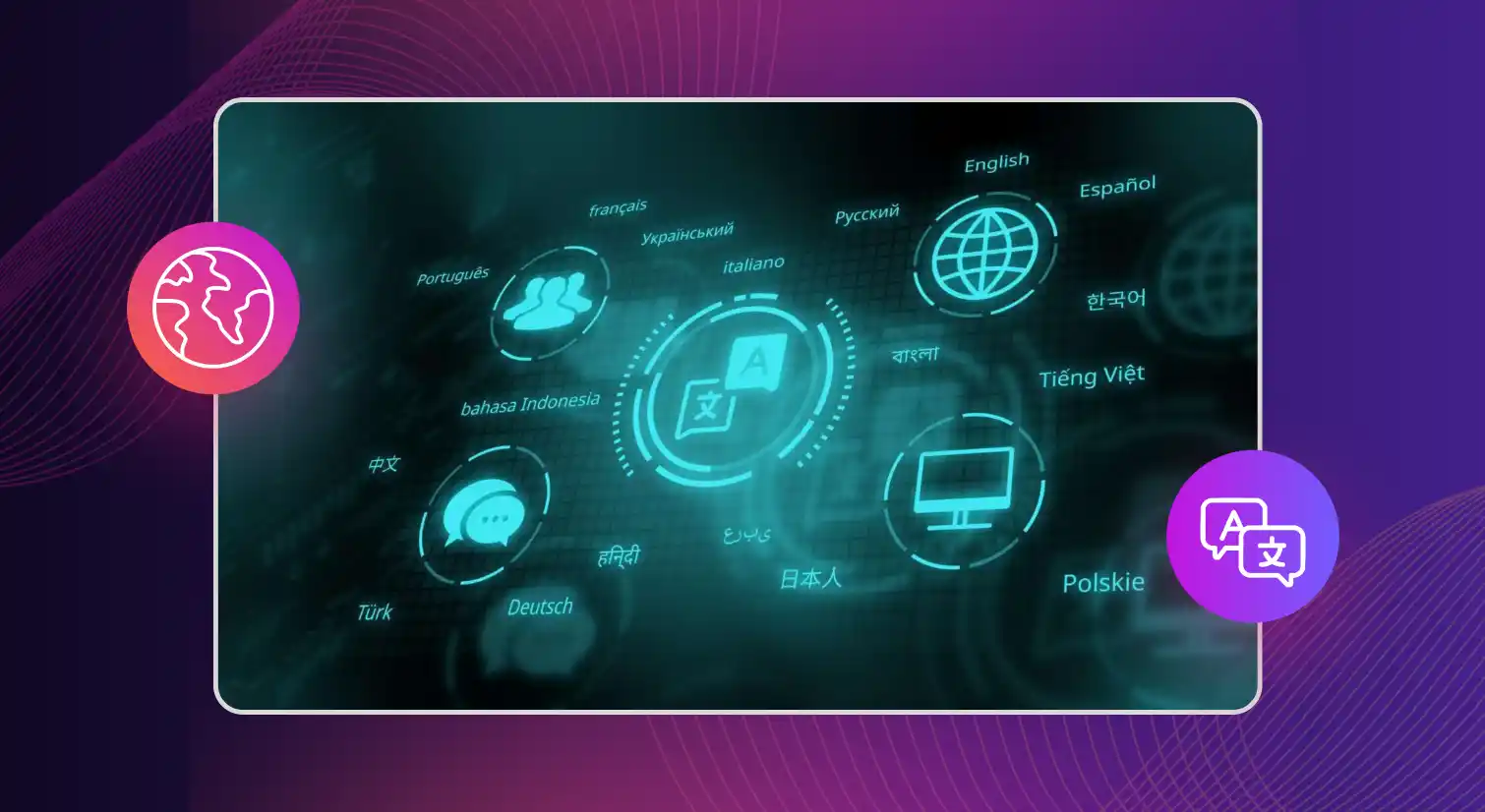
.webp)
